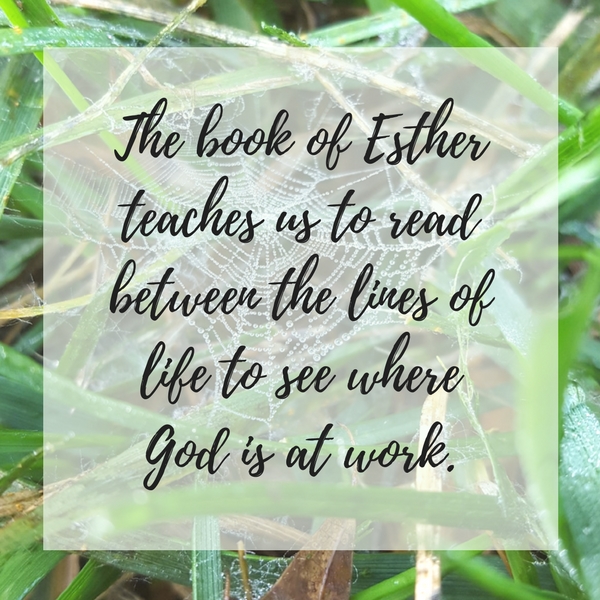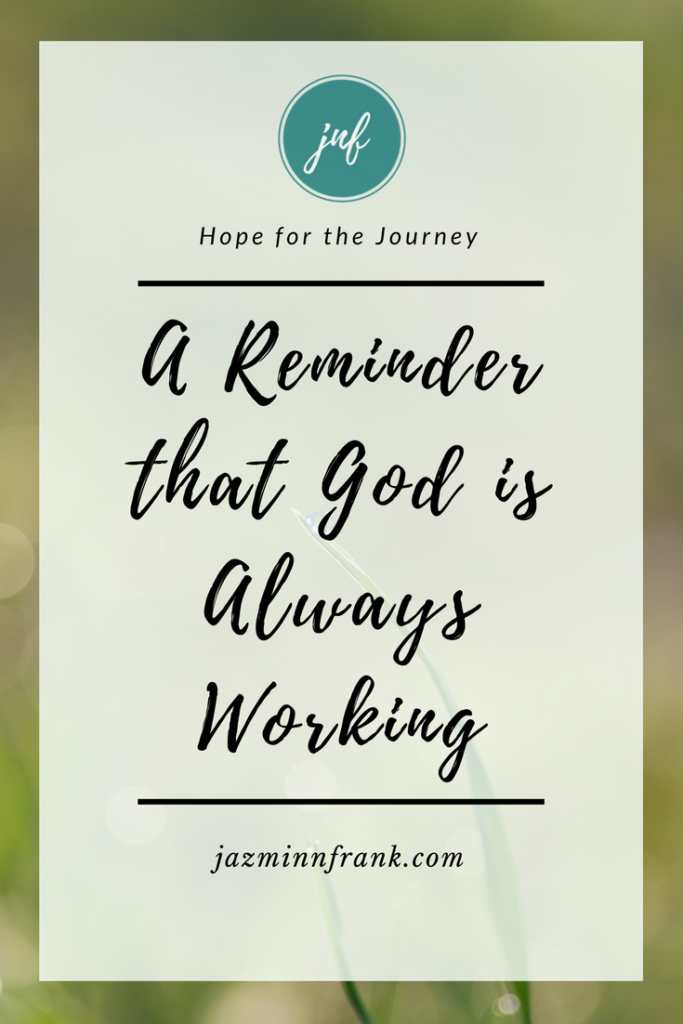 Here we are at the end of our Esther study. We’ve celebrated Esther, the heroine of the story, and the one often remembered for her courage and humility. We’ve celebrated Mordecai, a man of faith and action who played an important role in spurring Esther to act on behalf of her people. And today we celebrate one last Hero whose name isn’t even mentioned in this book: Yahweh.
Here we are at the end of our Esther study. We’ve celebrated Esther, the heroine of the story, and the one often remembered for her courage and humility. We’ve celebrated Mordecai, a man of faith and action who played an important role in spurring Esther to act on behalf of her people. And today we celebrate one last Hero whose name isn’t even mentioned in this book: Yahweh.
Now, this begs a question: if the Bible is God’s story, why would a book be included that doesn’t even mention His name?
I think it comes down to the fact that, while God’s name isn’t mentioned, He is undoubtedly present.
I don’t know about you, but when I read the book of Esther, it reads so much like an action story to me. The king banishes his wife, all the young women are brought to the palace, Esther is made queen, she rescues the Jews–all of those events seem to happen one right after the other.
But the reality is, this story actually spans about a decade.
When we first meet King Xerxes and his soon-to-be-banished queen Vashti, Xerxes is in the third year of his reign over Persia. “Later” after Vashti’s been gone for a bit, the king realizes his mistake in dismissing his queen, and the edict is sent out that the king is searching for a new queen.
That small word “later” I’ve often read to mean as a few days or weeks. But the reality is years have passed between Vashti’s banishment and the groups of women, including Esther, being brought to the harem. While at the palace, it is another year before any of the women are brought before the king, and who knows where Esther fell in the line-up.
It isn’t until the end of Xerxes seventh year as Persia’s ruler that Esther is taken to him and a crown is placed on her head.
Only two chapters into the book and already four years have passed.
Five years after Esther’s coronation, Haman is be welcomed into the king’s court in the twelfth year of Xerxes’ reign. Now we finally get to the part about the plot against the Jews and a date is set for the end of that year to annihilate all Jews.
Despite how it reads in the book’s ten brief chapters, this story is actually very slow to progress.
And behind the scenes, quietly working and putting things in their places, God’s invisible hand slowly becomes a little more apparent.
It was no accident that the girl who was chosen queen was of the same nationality as the people sentenced to complete annihilation. And I don’t think it’s an accident that God’s name is left out of this book.
Many assume Mordecai wrote this book, and as a Jew living in exile in a foreign land with the rest of his people, it’s possible that Mordecai practiced his faith quietly. If he was so concerned about Esther revealing her heritage, he probably kept his decently hidden as well. Perhaps this translated in how he recounted this history as well. But I also think that the author–whether Mordecai or another–was very purposeful in telling the story this way.
The book of Esther teaches us to read between the lines of life to see where God is at work.
In the midst of the action, I’m sure it felt like anything but divine providence that Esther was chosen queen. When Haman’s scheme became public, the Jews probably questioned where God was in all of this. Mordecai tore his clothes and put ashes on his head as he mourned the coming destruction of his people.
Yet, despite what people thought, God was working. In fact, He started putting pieces into place to save His people long before the threat even arose.

It can be difficult when life is happening all around us to notice God. It can be hard to keep doubt at bay and trust that He cares and He sees.
But if I’ve learned one thing from the book of Esther, it’s that God is always at work, and if we take the time to step back and look at where we’ve come from, we can see His fingerprints–those times when things looked bleak but turned out okay in the end, when we experienced grace and salvation even when we’ve screwed up big time, when the emotions that felt too heavy to handle are in the past and we’re in a new season.
It’s like that Footprints poem when the speaker notices a span of time when there was only one pair of footprints in the sand. He questions why God left him alone, but the reality was, God carried Him through that season.
Too often we see life through the lens of an inactive, inattentive God. My prayer is that God begins to open our eyes to see how present He truly is.
No matter the season you find yourself, I pray you would be able to see God there. Things might feel really slow right now, and you may not understand why you’re here in this place. But I challenge you to trust that God knows what He’s doing; that right now He is working together for your good and His glory, preparing the way for something down the road.
And I think, if you were to look back and ask God to show you where He was and all the ways He’s worked to bring you to this place right now, you would see the trail of His footprints leading your to where you are.
Well friends, that wraps up our most recent study! What new things did you learn about Esther? Is there a way God has spoken to you through this series? Ideas for a future series you’d like to participate in?
Live in His love!

Related: Esther, a Girl of Humility and Courage | Mordecai, a Man of Faith and Action

